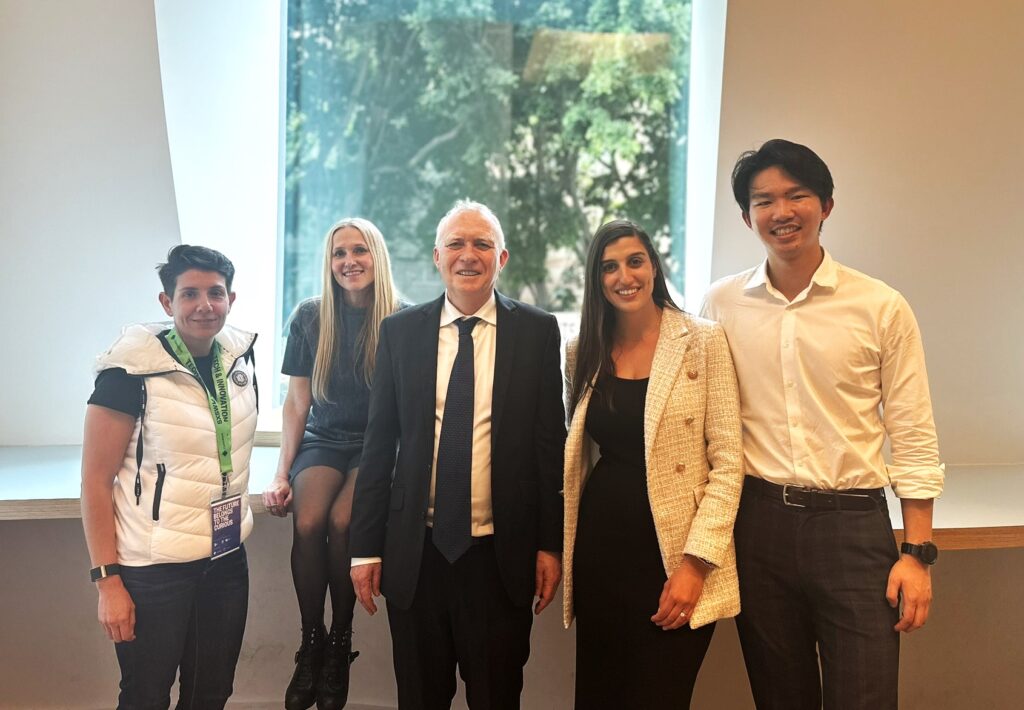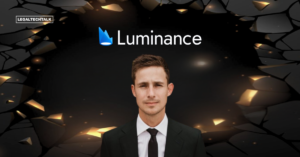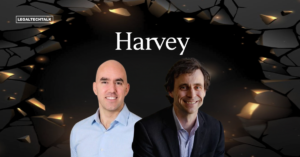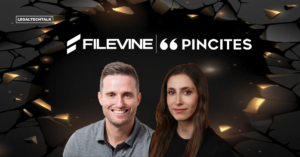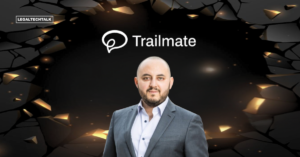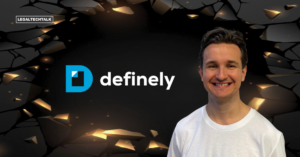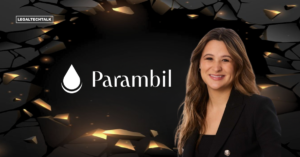Lander & Rogers hosted a pioneering event at SXSW Sydney—the annual gathering of visionaries, thought leaders, and emerging talents—where senior associate, Jeanette Merjane, acting as counsel, successfully outperformed the AI in a mock trial, showcasing the enduring strength of human intelligence in the legal field.
Hosted by Courtney Blackman, head of partnerships and director of the LawTech Hub and AI Clinics within Lander & Rogers’ innovation function, the iHub, the mock trial captivated the audience with its engaging and educational format. The trial focused on a relatable traffic offence: using a mobile phone whist driving, providing a straightforward matter for both human and artificial intelligence to highlight their capabilities.
Jeanette Merjane represented a randomly selected audience member, while a second randomly selected audience member was self-represented using the Sydney-founded AI tool NexLaw, supported by Ken Leung, a lawyer on Lander & Rogers’ Digital Economy team.
Professor David Lindsay from the University of Technology Sydney (UTS) presided as the judge.
Outcome and Insights
Attendees played an active role in the event by voting on the outcome, but the ultimate decision-maker was the judge. The audience witnessed firsthand the strengths and limitations of both human and artificial intelligence in a legal context. Despite the advanced capabilities of the AI platform, Jeanette Merjane’s courtroom skills including advocacy, analytical and critical thinking, ethical judgment, and specialised expertise with ability to apply previous judicial decisions, known as precedents, ultimately led to a victory for human intelligence.
Ms Merjane commented, “This mock trial was a unique opportunity to explore the evolving role of AI in the legal profession. Even though AI has come a long way, our SXSW Sydney mock trial showed that human intuition, experience, and adaptability are still key in the courtroom. It was eye-opening and fun to be a part of the experiment, proving that human intelligence still holds a vital place in our justice system”.
“I am very open to incorporating an AI-powered trial platform into my legal practice”, Ms Merjane added, “NexLaw’s ability to quickly process and analyse large amounts of data would significantly boost our litigation capabilities.”
Mr Leung commented, “The mock trial at SXSW Sydney was a fantastic experience. It highlighted the potential of AI in assisting legal processes, but also underscored the irreplaceable value of human judgment and expertise. The event provided us with valuable insights into how AI can be integrated into legal practice to complement, rather than replace, human lawyers.”
After declaring the human lawyer victorious, Professor Lindsay remarked, “There is great potential for AI to assist with improving access to justice. But, at this stage, the immediate future will involve trained lawyers working alongside AI systems.
“Ms Merjane was very well-prepared and performed as a highly trained legal professional.
“The self-defended party, using AI, did an impressive job of constructing coherent arguments that persuasively and accurately dealt with the evidence. That said, there were some technical issues with the case. In particular, the responses from the AI system did not focus as clearly on the elements needed to establish the offence. And the AI system incorrectly cited legislation.
“In addition, the outputs—while impressive—depended significantly on the expert prompts from trained lawyer, Ken Leung. It is unlikely that an untrained person would achieve the same quality of outputs.
“Ultimately, the future lies in humans working alongside AI—with the best results achieved by people who are trained in the relevant disciplines, and in skills such as prompt engineering.”
Audience and participant reaction
The audience was on the edge of their seats throughout the trial, reacting with keen interest and scepticism as the AI presented a fairly good opening statement, presentation of evidence, and closing argument. The interactive voting process added an extra layer of excitement, with attendees casting their votes and discussing the trial’s implications.
Jaz Zrieka, a delivery lead at DiUS, volunteered to be the self-represented party using the AI-powered trial platform, supported by lawyer, Ken Leung.
Ms Zrieka shared her thoughts after the experiment: “It was fascinating to see AI in action, essentially helping me defend myself, but I don’t think I could have used the platform without Ken’s assistance. I could certainly have prompted the AI, but I wouldn’t have known the right legal terms to use or structure to truly be able defend myself. Jeanette’s performance was excellent, and I think it reminded me and everyone in the room that we cannot replace humans in complex situations like legal proceedings anytime soon. It was fun to be a part of and definitely sparked a lot of conversations about the future of AI in law.”
Looking Ahead
Ms Blackman, who developed and produced the event, which aligns with the firm’s commitment to innovation and the ethical us of AI in legal practice, said: “I’m unquestionably an AI enthusiast and went into the experimental trial with an open mind. However, as the proceedings unfolded and the wrong legislation was cited by the AI platform, countered by our trained lawyer Jeanette seamlessly advocating on behalf of her defendant, it became clear who would emerge victorious. It was great fun to test the AI trial platform in front of a live audience showcasing its impressive capabilities, but it was most rewarding to see our human lawyer triumph.
“At Lander & Rogers, we’ll continue to lead the way in trialling and experimenting with legal tech innovation through our iHub, AI Lab, LawTech Hub, and AI Clinics. We remain committed to exploring the responsible and ethical use of legal technology, ensuring that both human and artificial intelligence complement each other.”
The ‘Can AI win a court case?’ mock trial at SXSW Sydney took place on October 15, 2024.
About Lander & Rogers
Founded in 1946, Lander & Rogers is one of the few remaining truly independent Australian law firms and is a leader in legal tech innovation through its iHub, AI Lab, LawTech Hub, and AI Clinics.
With offices across the eastern seaboard of Australia, the firm has grown organically resulting in a unified firm with a strong focus on client and staff care.
“We believe legal services involve more than just the law – practical, commercial advice and exceptional client experience are equally important to our clients and to us”, says Genevieve Collins, Chief Executive Partner.
Lander & Rogers advises corporate, government, not-for-profit and private clients in insurance law and litigation, family law, workplace relations and safety, real estate, corporate transactions, digital & technology, and commercial disputes.
The firm is global in approach, working closely with a network of leading firms to provide advice to clients, both domestically and abroad. Lander & Rogers is also the exclusive Australian member of the world’s leading independent network of law firms, TerraLex.
Contact: Sarah Marke – Marketing Manager iHub, AI Lab & LawTech Hub
e. [email protected] d. +61 3 9269 9193

